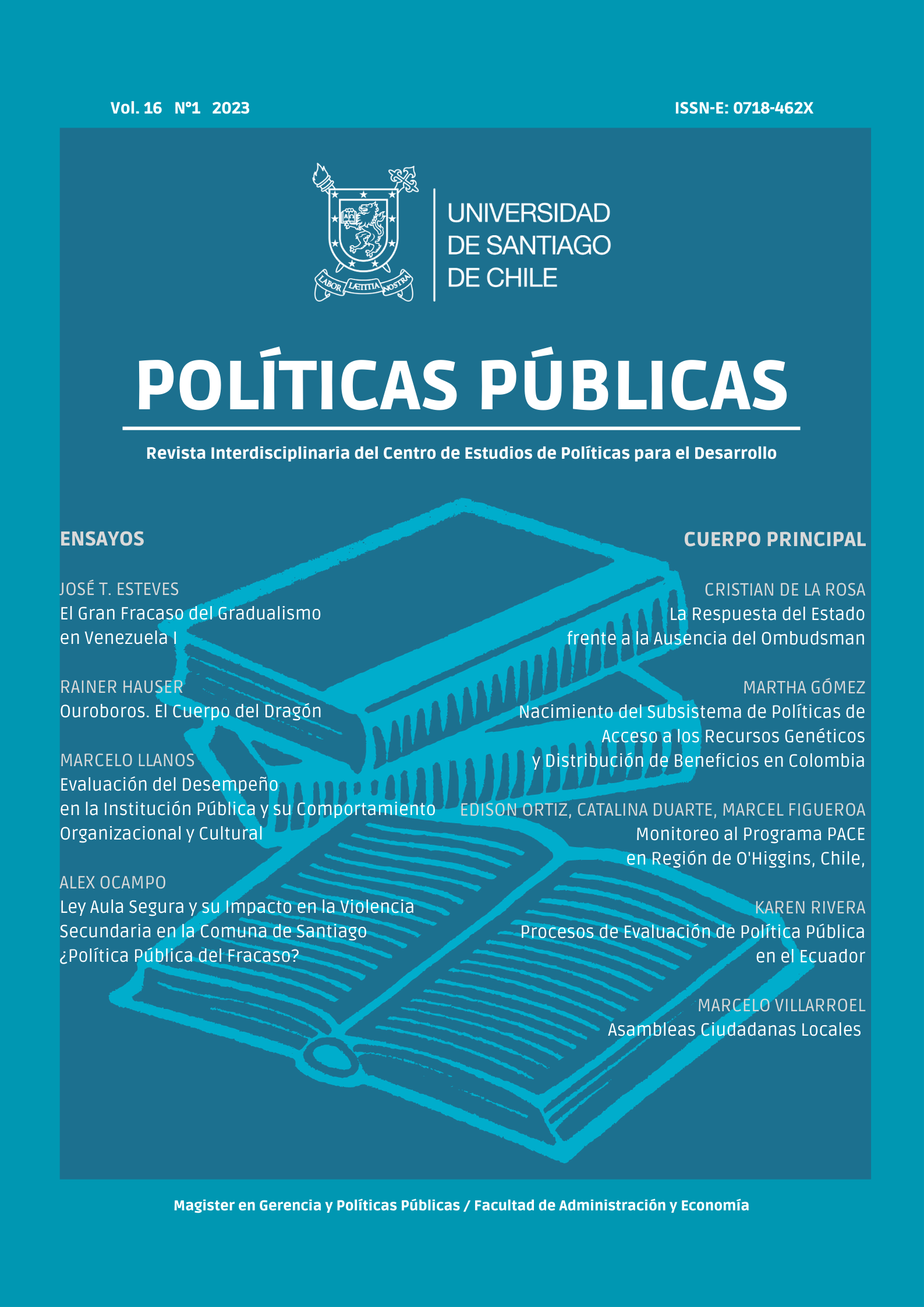Performance Assessment in the Public Institution and its Cultural and Organizational Behavior
DOI:
https://doi.org/10.35588/pp.v16i1.6112Keywords:
Performance Assessment, Public Institutionality, Organizational BehaviourAbstract
This article aims to analyze the performance assessment systems in the public sector from a reflective and purposeful perspective, developing a sociological and philosophical basis for a contingent and relevant issue for the entire public administration. It begins by mentioning some initial axioms and hypotheses of the matter. Then, it carries out a brief analysis from the theoretical perspective of Plato through his famous allegory of the cave and some concepts mentioned by the social biologist Humberto Maturana, using a modernization
approach of the State. It concludes with recommendations about the main implications in the organizational behavior of public officials and how to address it.
Downloads
References
Alcaz, R. [@rafael_alcaz]. (30 de junio, 2021). La Alegoría de Caverna, escrita por Platón describiendo un diálogo de Sócrates con su hermano [Fotografía]. Instagram. https://www.instagram.com/p/CQvckgelIUy/
Badion, A. (2013). La República de Platón. Fondo de Cultura Económica.
Berger, P., y Luckmann, T. (1968). La Construcción Social de la Realidad. Amorrortu Editores.
Blumemberg, H. (2004). Salidas de la Caverna. Antonio Machado Libros.
Ferrater, J. (1979). Diccionario de Filosofía. Alianza Editorial.
Maturana, H. (2020). El Sentido de lo Humano. Paidós.
Maturana, H. (2020). La Objetividad. Un Argumento para Obligar. Paidós.
Maturana, H., y Dávila, X. (2019). Historia de Nuestro Vivir Cotidiano. Paidós.
Platón. (1997). La República. Centro de Estudios Políticos y Constitucionales.



